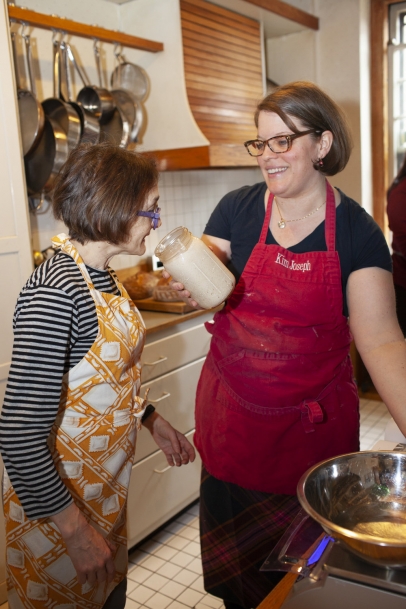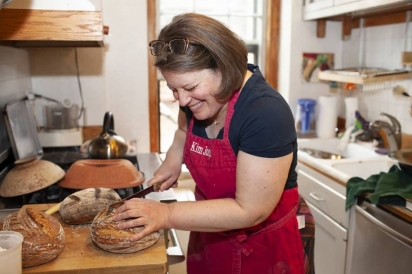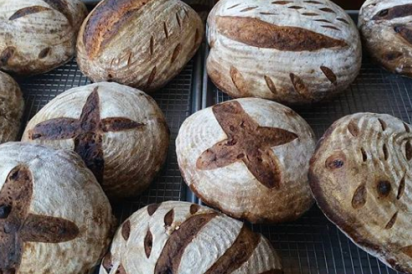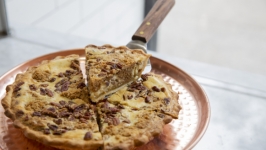Little Wildbranch Bakery’s Sourdough Loaves Are a Community Effort
Baking a loaf of bread can be as simple as mixing together three ingredients—flour, water and yeast. Turning that loaf into a business, however, can prove a lot more complicated. Yet that’s what Kim Joseph was inspired to do two and a half years ago. She had just returned to New York City from a stint teaching English in Japan, and after years of eating a rice-based diet was fairly sure a gluten intolerance would make it impossible for her to enjoy bread again. A gift from a friend—a loaf of home-baked sourdough—changed that.
“It’s nice when you eat something and it just feels good in your body,” she said. “I thought, ‘I need to learn how to make this.’”
Anyone who’s tried baking with sourdough will know, it isn’t an exact science. The starter needs to be coddled and cosseted, almost like a pet, and the bread itself can be finicky. A recipe is only half the battle; gaining a feel for the way the dough mixes, stretches, bubbles and puffs is far more important than setting a timer. In much the same way, starting a one-woman business takes intuition and luck.
But for Kim, it also took a near-death medical experience: “I had three brain surgeries in three months,” she said. “I was working as a supervisor at Starbucks at the time, so I went back to work and just felt like ‘I can’t do this anymore.’” The answer was to get good enough at sourdough (she’d already been selling cakes, cookies and other sweets at the Jackson Heights CSA) to make it into a business.
The result, Little Wildbranch Bakery, may seem like a one-woman effort, but it’s an encapsulation of the kind of teamwork that helps bring small businesses into the world. It’s also a fitting representation of Queens: While Brooklyn continues to garner accolades, Queens has long been a place where food entrepreneurs can find community support and a cheap cost of living, both of which used to be more prevalent across New York City.
Kim’s first problem—where to bake—quickly resolved itself when one of the owners of the Queensboro—a much-awaited Jackson Heights restaurant that, at the time, wasn’t even open yet—offered to let her borrow their ovens. She soon formed a deeper partnership with the restaurant, selling her loaves there and providing her bread as a base for a few of their dishes, including avocado toast. When a new neighborhood cheese shop—Stand Alone Cheese—expressed interest in selling her loaves, she hired a busboy from the Queensboro to help with logistics.
She has since inquired at other area businesses about selling her bread, each time with a personal, some might say old-fashioned approach: hand-delivering her loaves along with a note. So far, according to her, the working relationships she’s managed to develop “happened organically. There has to be a flow between me and the other person.”
Nowadays, Kim is firmly and happily entrenched in her process, which includes late nights and early mornings shaping and proofing loaves at the Queensboro outside of its service hours, as well as growing herbs for the St. Mark’s Church food pantry, some of which make it into her bread. When she thinks about the future of Little Wildbranch, it’s not just about going big, but also about going wide, making sure her bread can be something for everybody.
“Recently I’ve become aware of the fact that I have a purpose to help remove hunger from the world,” she added. Her vision: “A community-supported bakery… where people can come in and learn; not just a business for me, but owned by other people.”
In a neighborhood like Jackson Heights, where multiple communities are stacked on top of each other and businesses from a dozen different countries are often wedged into the same block, it’s a worthy goal.











